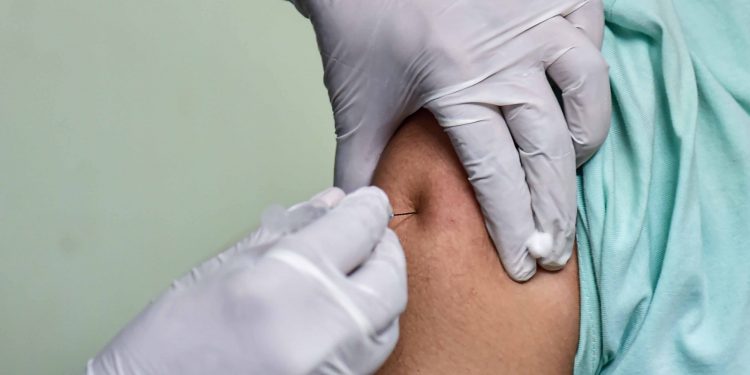London: The UK government has ruled out plans to decrease the gaps between two doses of Covid-19 vaccinations, even as infections driven by the Delta variant are surging in the country.
The Joint Committee on Vaccination and Immunisation ruled out the three week gap and recommended “an interval of 8 to 12 weeks between doses of all the available Covid-19 vaccines”, dashing hopes that the UK might be able to speed up the vaccination programme by closing the gaps between doses, the Financial Times reported.
The advisory body said this gap would “avoid confusion and simplify booking, and will help to ensure a good balance between achieving rapid and long-lasting protection.”
Last week, Prime Minister Boris Johnson said that the UK is “very likely” to ease lockdown measures on July 19. It was pushed back by four weeks from June 21 amid concern over the spread of the Delta variant.
Easing of lockdown measures could be a cause of concern as the country will not meet its target of ensuring two-thirds of adults with two jabs, FT cited people familiar with the UK vaccination programme.
Experts from the National Health Service (NHS) and scientists are concerned as only 63 per cent in the country are fully vaccinated, while more than 85 per cent received only the first dose of a Covid vaccine. At the same time latest data showed Covid-19 infections have jumped by 74 per cent week-on-week.
“We may have weakened the link between infections, hospitalisations and deaths but this significant increase in infections with the Delta variant raises serious concerns,” Professor Lawrence Young, a virologist at Warwick Medical School, was quoted as saying.
“One risk was that, as the virus spread it would continue to generate new variants increasing the risk that one will pop up that is more vaccine resistant,” he added.
While some suspect that the decision to not reduce the gap between the two jabs is due to difficulty in accessing supplies. However, government insiders have denied supply constraints, the report said.
But, Prof Anthony Harnden, deputy chair of the JCVI said: “regardless of supply constraints the minimum eight-week gap was preferable as it meant young people, who may not receive boosters in the autumn, had robust and long-lasting protection.






































